From Local Solutions to Global Impact: Community-Led EbA Shines at the IUCN World Conservation Congress
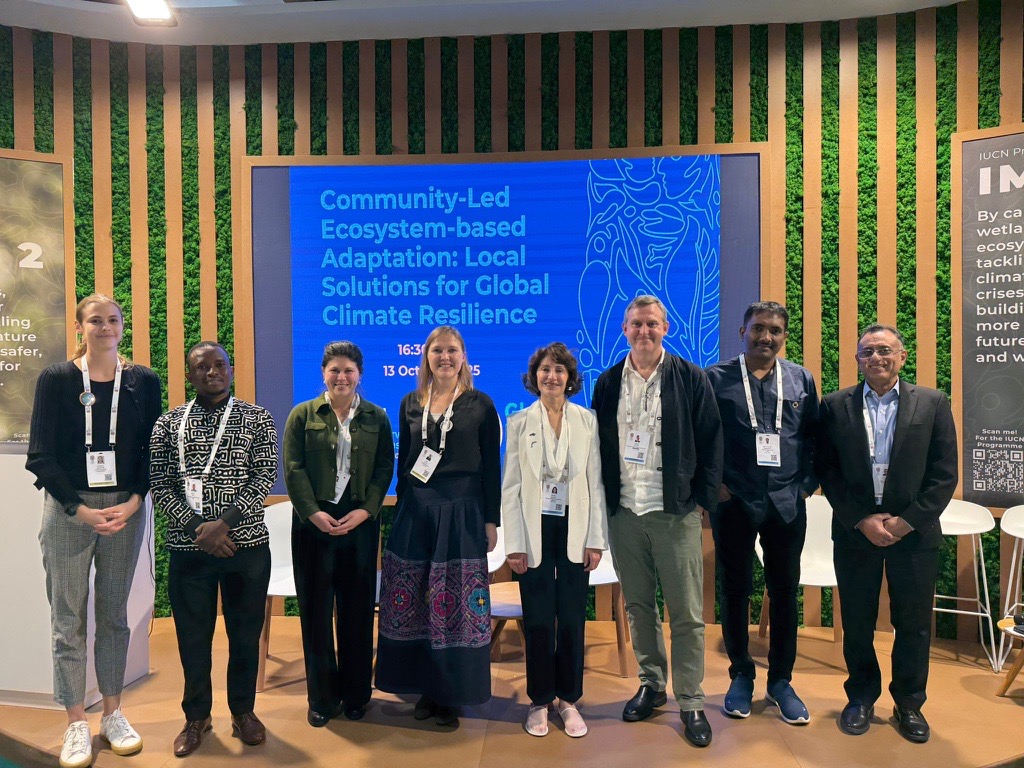
As climate risks intensify, locally led solutions are proving to be powerful drivers of climate resilience. At the IUCN World Conservation Congress, the Global EbA Fund brought together grantees and partners from Africa, Asia, Latin America and the Levant, to share experiences from the frontlines of climate adaptation. Their work illustrates how Ecosystem-based Adaptation (EbA) can transform communities, ecosystems, and economies.
The Power of Community Leadership
Trevor Sandwith, IUCN, emphasised that EbA is not only a nature-based solution but also “a community-based imperative.” By rooting adaptation in local ecosystems and knowledge, EbA builds resilience while delivering co-benefits for biodiversity, livelihoods, and social cohesion.
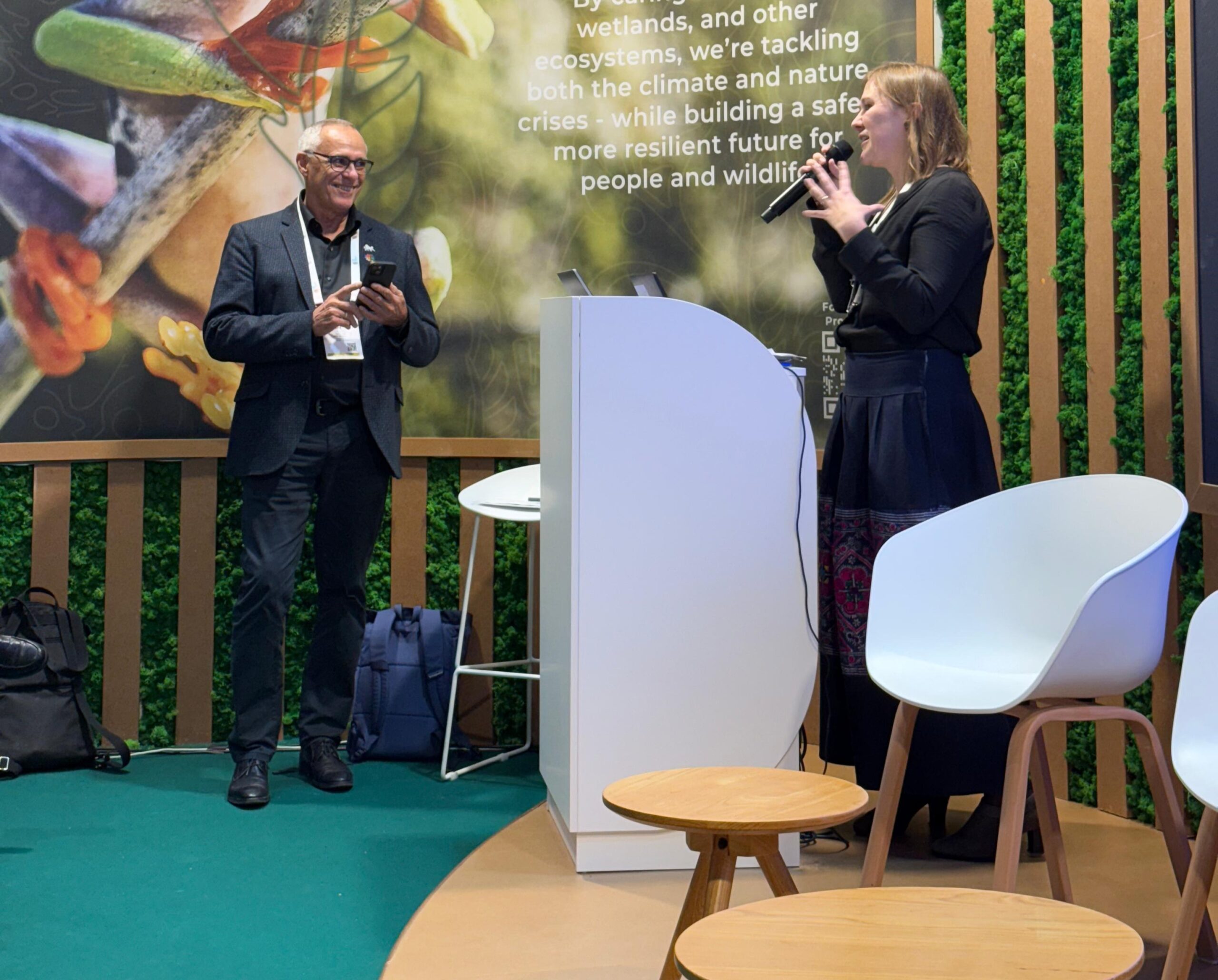
Kathryn Goodwin, Global EbA Fund, shared an overview of the Fund’s work since its 2021 launch: supporting 54 projects across 36 countries, mobilising over USD 7.9 million, and influencing more than 50 policies to integrate EbA. “These projects are catalysts,” she said. “They demonstrate what works on the ground and help create enabling conditions for scale.”

Agroecology and Farmer Leadership in the Levant
Dr. Myrna Semaan, Friends of Nature Lebanon, shared insights from their regional project spanning Jordan, Lebanon, and Syria, supporting farmers to adopt agroecological and EbA practices in a region severely impacted by prolonged drought.
“We need to understand farmers,” Myrna said. “They are among the most vulnerable, often left out of decision-making. EbA works for them because it builds on what they already know — their connection to the land, their cultural heritage, and their need for practical, low-cost solutions.”
She also highlighted linking local practice with policy. By engaging decision-makers and integrating agroforestry into Nationally Determined Contributions (NDCs) and other frameworks, the project is creating pathways for scale. “Farmers should not be left alone in this battle,” she stressed, noting the importance of tailoring communication for different stakeholders and making experiences tangible rather than theoretical. “We need to speak the language of policymakers, financiers, and communities if we want to bridge the gaps.”
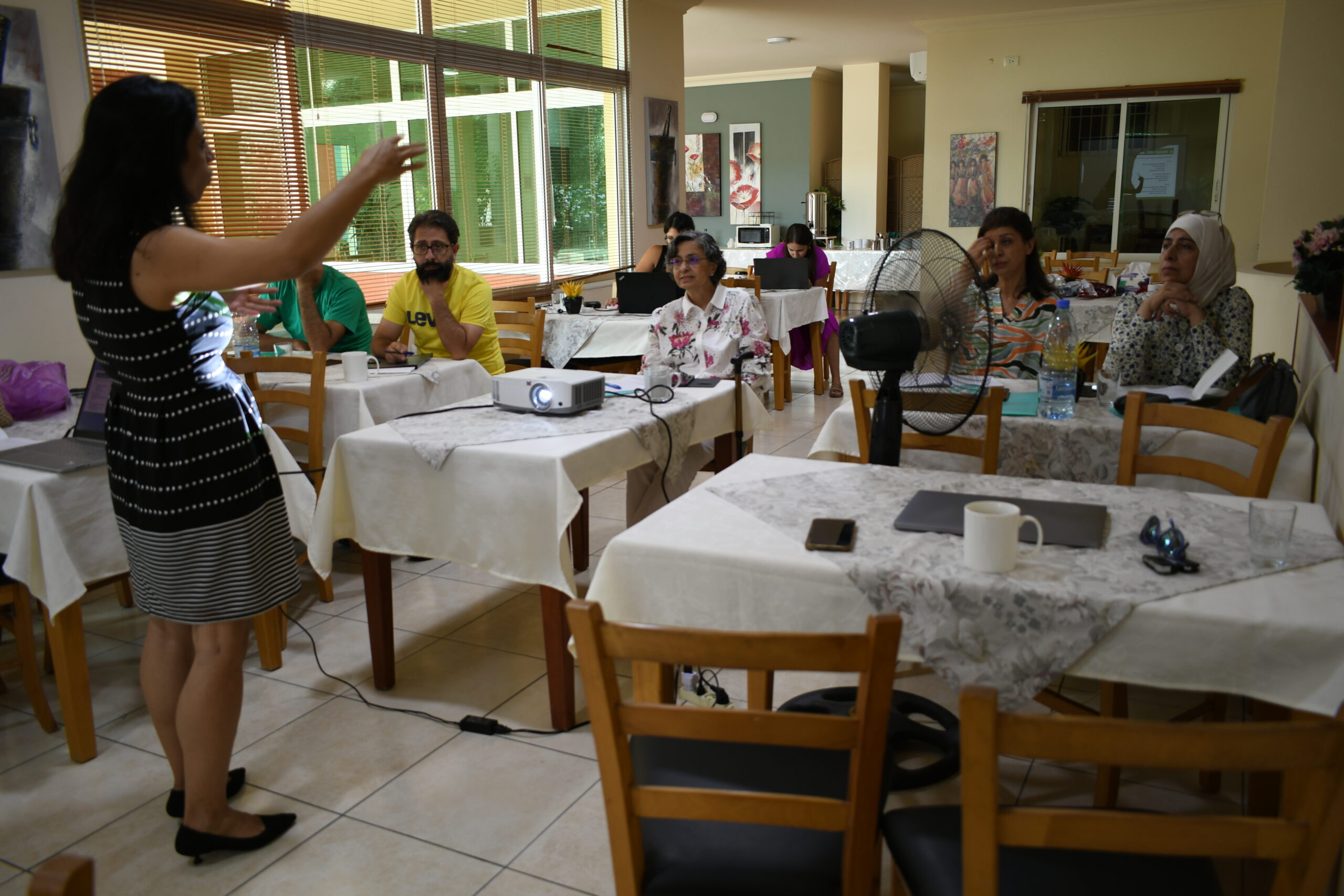
Trees4All: Financing Nature in Thailand
Peter Cutter, RECOFTC, introduced “Trees4All”, an agroforestry and financing initiative in Northern Thailand. The programme enables individuals to sponsor farmers to plant native trees for USD 4 per tree, with monitoring and verification through an online platform. It has mobilised over USD 124,000 and engaged 191 smallholder farmers.
“Financial incentives are just one part of the model,” Peter explained. “The key is building long-term adaptive capacity—through tenure security, diversified incomes, and community ownership.” He emphasised that demonstrating tangible outcomes to donors creates a powerful connection: “People want to see that a small contribution directly benefits a farmer and the landscape.”
Reflecting on lessons learnt, Peter highlighted the importance of connecting small-scale, ongoing adaptations to larger narratives: “It’s not the size of a single event that matters, but the accumulation of many small actions that build resilience. Collecting all these pieces and tying them together shows real change for individuals, families, and communities.”
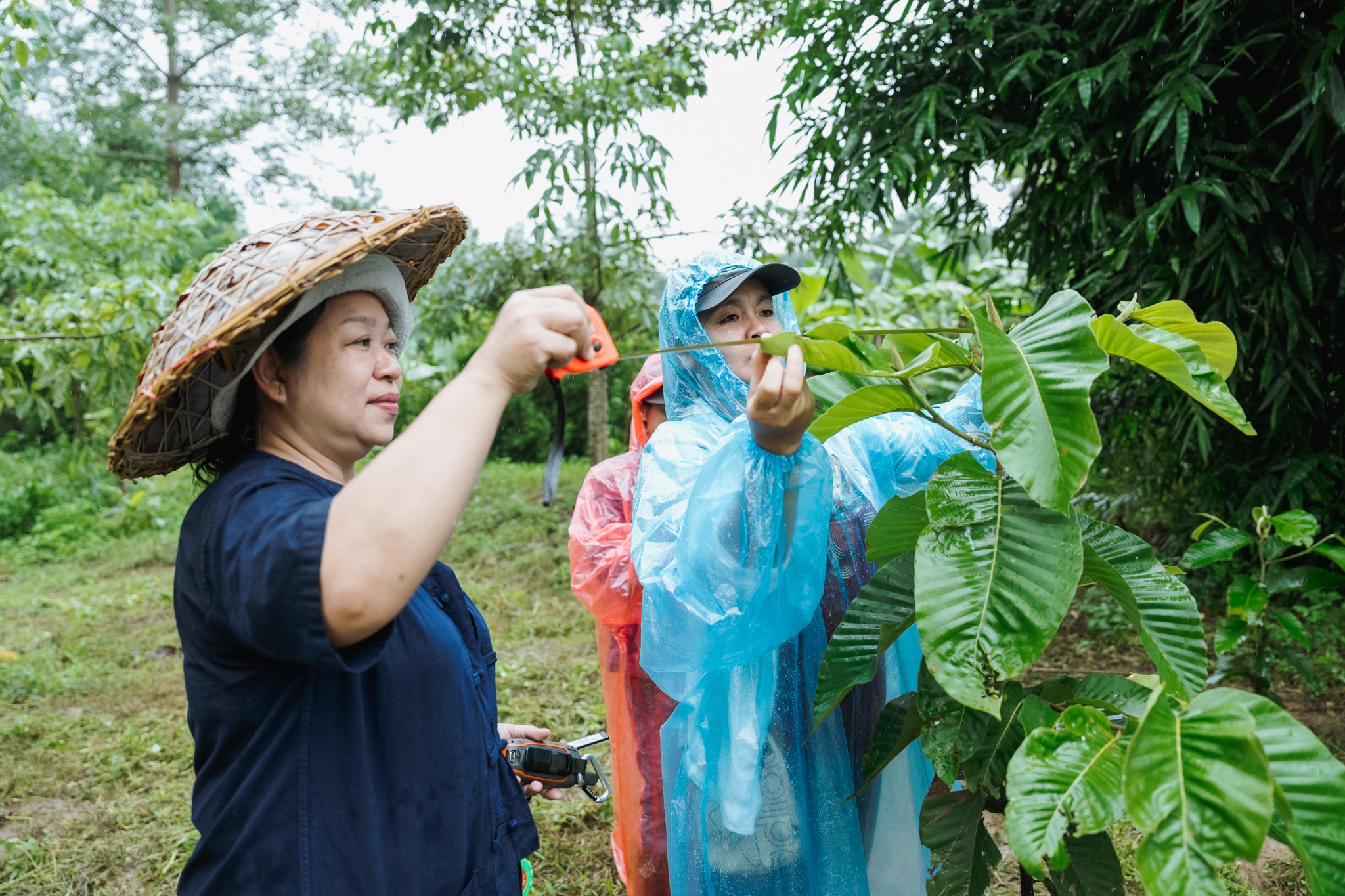
Urban Adaptation Through Age-Inclusive Action
Hari Krishna Nibanupudi, HelpAge International, presented an urban adaptation perspective, integrating EbA into city spaces with a focus on elderly people. Their project in Bogotá (Colombia) and Mexico City (Mexico) develops age-friendly green spaces to help communities adapt to heatwaves and urban stress.
“The conversation around climate often focuses on youth,” Hari noted. “But by 2050, one in six people will be over 60. Older people bring unique knowledge and resilience. They are like grass—rooted and strong—and like eagles—with a long-term perspective.”
Through “transit walks” and participatory design sessions, older residents co-designed gardens and parks with municipal authorities, ensuring these spaces are hubs for community resilience and intergenerational knowledge exchange. Hari stressed that EbA must be communicated in ways that resonate with people’s lived experience: “When people see how it affects their lives and communities, they don’t need the technical language. Sustainability is about ensuring their ecosystem supports their livelihood for years to come.”
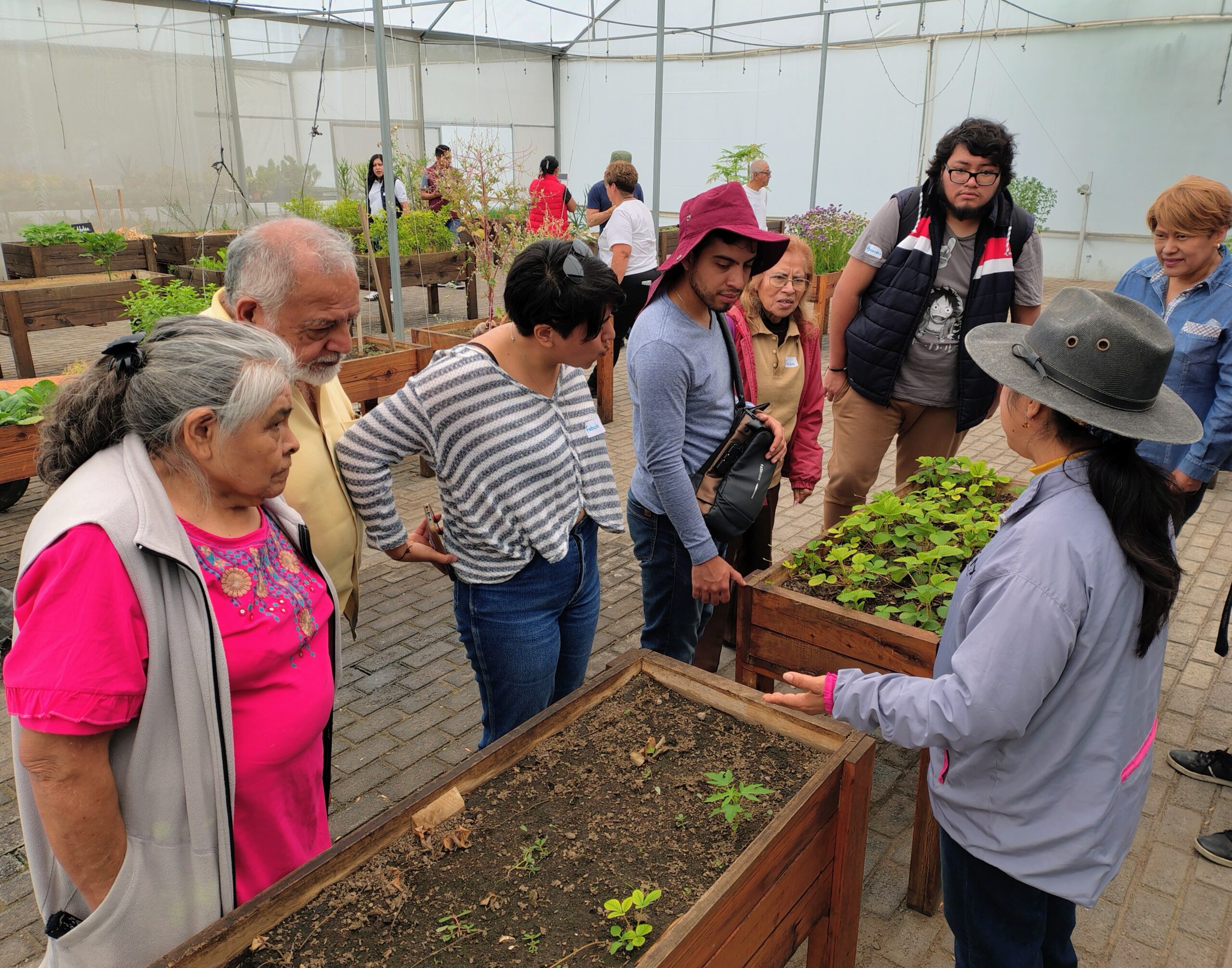
Scaling Local Action Through Policy, Knowledge, and Finance
Across all interventions, common threads emerged: the importance of policy integration, trust-building with communities, and flexible financing mechanisms. Myrna highlighted the need to adapt communication to each audience, Peter emphasised documenting small actions and data for storytelling, and Hari stressed rooted, community-driven approaches to build on existing local knowledge and an evidence base for greater ownership and sustainability.
Financial innovation, as seen in Trees4All, policy integration, as in the Levant project, and trust-building, as in the Latin America project, demonstrate how local EbA initiatives can influence governance, attract investment, and create lasting impact.
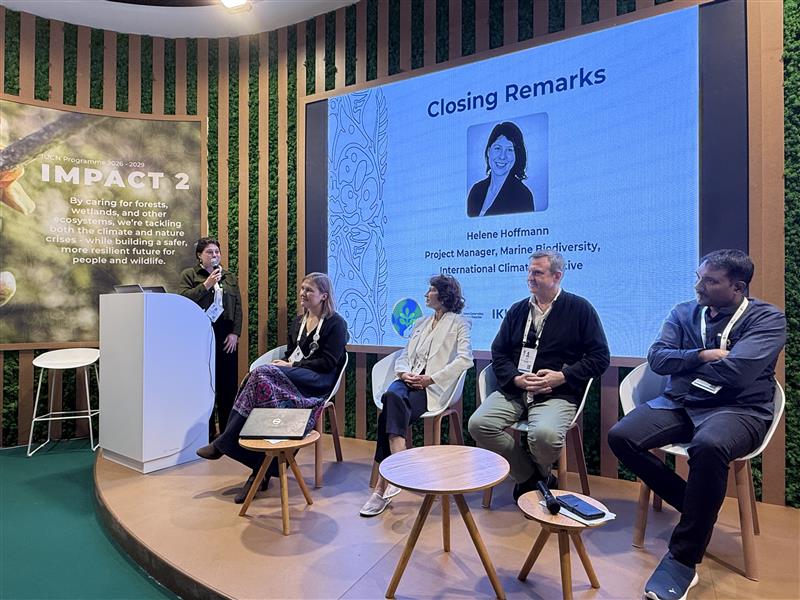
Closing Reflections: From Local to Global
Helene Hoffmann, International Climate Initiative (IKI), reflected on the Fund’s success: “Since 2021, the Global EbA Fund has supported 54 diverse projects, reaching farmers, urban communities, and policymakers. These initiatives are showing that locally-led solutions are critical for building climate resilience while informing national and global strategies.”
Moderator Enni Kallio, Global EbA Fund, concluded: “These stories show that EbA is not an abstract concept. It’s farmers adapting to drought, communities greening their cities, and people finding local pathways to resilience. If we listen closely, local solutions can drive global impact.”
The Global EbA Fund Secretariat thanks all speakers and participants for attending the session, as well as UNEP, IKI and BMUKN for their continued support. Stay tuned for the Fund’s next chapter in its journey of scaling innovative, community-led solutions that restore ecosystems, strengthen livelihoods, and inspire global action.
Implemented by IUCN and the UN Environment Programme (UNEP), with funding from the International Climate Initiative (IKI) of the German Federal Ministry for the Environment, Nature Conservation, Nuclear Safety and Consumer Protection (BMUKN), the Global EbA Fund is a funding mechanism for catalytic, innovative, and inclusive projects that aim to create an enabling environment for the implementation of Ecosystem-based Adaptation (EbA) to enhance the resilience of vulnerable communities and ecosystems to the impacts of climate change.
